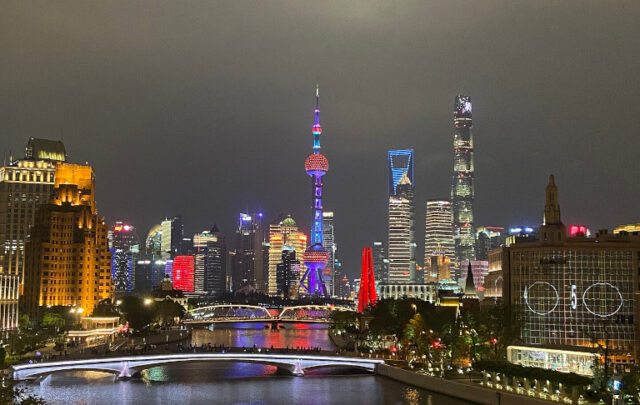Russia and China agreed to terms for Russia’s membership in the World Trade Organization during top-level talks in Moscow on Friday, but both sides left unanswered questions about whether Russia was ready to guarantee stable oil supplies and boost oil and gas deliveries in the future to its energy-hungry neighbor.
Chinese Prime Minister Wen Jiabao, in Moscow ahead of President Vladimir Putin’s visit to Beijing next month, signed a communique with his counterpart, Mikhail Fradkov, pledging full-scale cooperation in the energy sector.
Beijing has been lobbying Moscow to build a $2.5 billion pipeline to ship Siberian oil to China. A competing proposal has been pushed by Japan, which considers a pipeline to Russia’s Pacific port of Nakhodka more advantageous for its energy demands.
The communique said Russia would continue increasing railway deliveries to China and was considering building an oil pipeline to supply the Asian markets and a gas link from the BP-led giant Kovykta field.
But neither Fradkov nor Wen were able to say how Moscow would guarantee oil flowing by rail after Yukos, Russia’s top oil exporter, said it planned to reduce supplies by two-thirds, saying it lacked the cash to fund basic operations.
Yukos faces more than $7 billion in back taxes, and its financial problems are part of a broader campaign seen by many analysts as orchestrated by the Kremlin to punish its main owner, Mikhail Khodorkovsky, for political activities. He is now on trial for fraud and tax evasion.
“This is a question for companies, but the government will not stay uninvolved to guarantee the needed railway oil deliveries,” Interfax quoted Fradkov as saying. He did not elaborate.
Industry and Energy Minister Viktor Khristenko was quoted as saying that Russia would not cover Yukos in case of interruptions to its supplies to China.
“Nobody ever said the government would guarantee specific volumes of Yukos’ oil deliveries,” Interfax quoted Khristenko as telling reporters.
“On this subject, the Russian government has talked about joint actions with the aim of supplying 6 million tons of oil to China in 2004, 10 million in 2005 and 15 million in 2006.
“The government is working toward that, but guaranteeing the risks of specific commercial firms is not the government’s business,” he said.
Russian Railways Co., or RZD, said last week the Chinese side was prepared to pay Yukos’ rail shipping fees up front, but the issue was not publicly disclosed after talks.
The Yukos-led plan to build a pipeline to China has stalled since Putin said he would prefer a pipeline to the Pacific coast, while the BP-led gas pipeline is not progressing amid a disagreement with state gas monopoly Gazprom on how to develop it.
Russian news agencies also quoted Wen as saying that Moscow had confirmed its pledge to build the oil pipeline to China as an additional stretch to its Pacific pipeline. But he did not give a timeframe.
Wen told reporters after his meeting with Fradkov that agreeing to the terms of Russia’s WTO membership was “the most important result of our meeting.”





